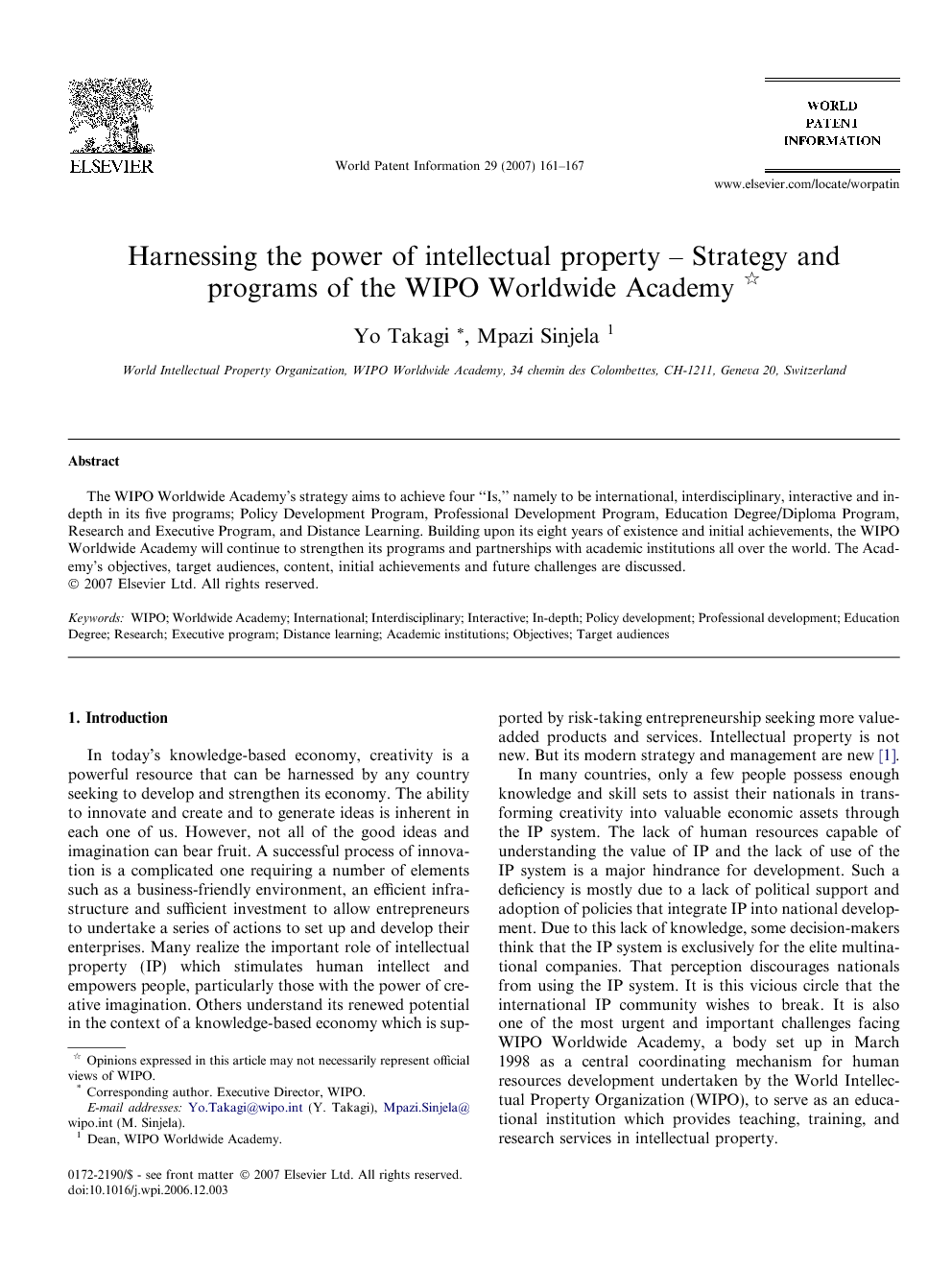ترجمه فارسی عنوان مقاله
مهار قدرت مالکیت معنوی - استراتژی و برنامه های آکادمی WIPO در سراسر جهان
عنوان انگلیسی
Harnessing the power of intellectual property – Strategy and programs of the WIPO Worldwide Academy
| کد مقاله | سال انتشار | تعداد صفحات مقاله انگلیسی |
|---|---|---|
| 16747 | 2007 | 7 صفحه PDF |
منبع

Publisher : Elsevier - Science Direct (الزویر - ساینس دایرکت)
Journal : World Patent Information, Volume 29, Issue 2, June 2007, Pages 161–167
ترجمه کلمات کلیدی
آکادمی در سراسر جهان - بین المللی - میان رشته ای - تعاملی - در عمق - گسترش خط مشی - توسعه حرفه ای - مدرک تحصیلی - تحقیقات - برنامه اجرایی - آموزش از راه دور - موسسات دانشگاهی - اهداف -
گروه مخاطب
کلمات کلیدی انگلیسی
Worldwide Academy, International, Interdisciplinary, Interactive, In-depth,
Policy development, Professional development, Education Degree, Research,
Executive program, Distance learning, Academic institutions, Objectives, Target audiences,

